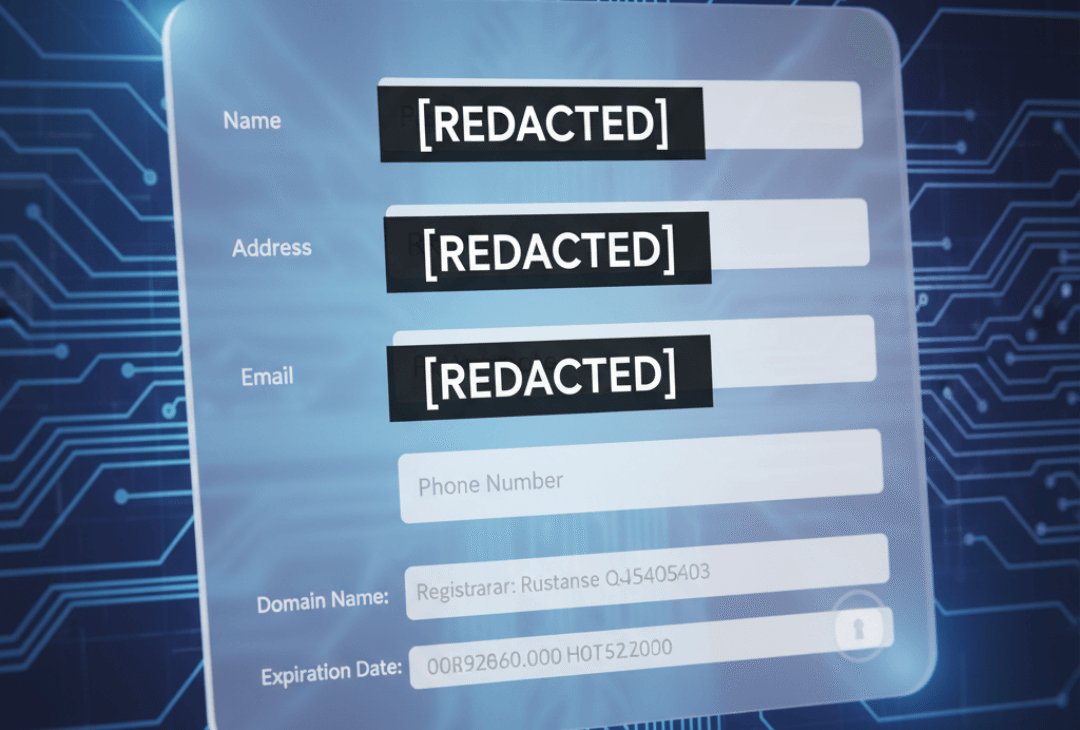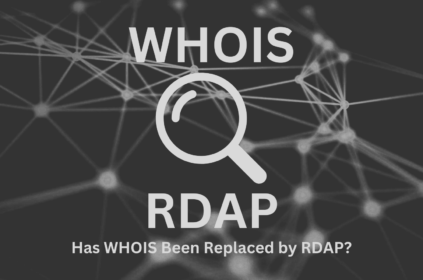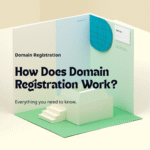The Digital Blackout: How GDPR Permanently Rewrote the Internet’s Phonebook
Remember the good old days of the Internet? If you wanted to know who owned a website, you just plugged the domain into a WHOIS search. Within seconds, a flood of personal data—the owner’s name, their home address, a phone number, and a direct email—would spill onto your screen. It was the internet’s transparent, though wildly intrusive, phonebook. Then came May 2018, and everything changed. The enforcement of the EU’s General Data Protection Regulation (GDPR) has resulted in a widespread and permanent state of GDPR WHOIS Redaction.
The GDPR didn’t just target cookies and privacy policies; it fundamentally cracked the foundation of the WHOIS system. Now, five years on, the results are clear: the era of open, personal-data-rich WHOIS records is officially over.
From Public Directory to Locked Filing Cabinet
At its core, GDPR simply demanded that companies stop publishing the personal data of natural persons (individuals) without a legitimate, legal basis. For domain registrars, the easiest and safest response was a total blackout.
Today, if you look up a domain registered by an individual, you’ll be greeted by the ubiquitous, slightly mysterious “[REDACTED FOR PRIVACY]” in the registrant and administrative contact fields.
What you still see publicly:
- The domain name itself
- The registrar’s name (e.g., GoDaddy, Namecheap)
- The domain’s creation, update, and expiration dates
- The domain’s nameservers
What you don’t see anymore:
- The registrant’s name
- Their address
- Their direct email address or phone number
In essence, GDPR forced the entire industry to flip from a model of “Transparency by Default” to “Privacy by Default.”
The Domino Effect: The Global Impact of GDPR WHOIS Redaction
You might think, “I’m not in the EU, so this doesn’t affect my domain.” Think again. This is where the sheer scope of the GDPR becomes fascinating.
The regulation applies not only to EU residents but to any company handling their data. Rather than build complex systems to differentiate between a registrant in Berlin and one in Boston, most large, global domain providers made a commercial decision: apply the highest privacy standard to everyone.
This caution resulted in a massive, sweeping change:
- Studies show that over 85% of domains managed by large providers now have redacted data.
- More than 60% of the same providers applied this protection globally, not just to EU-registered domains.
The result is that an EU law has effectively set a global standard for domain privacy.
The Cost of Privacy: New Speed Bumps for Business
While fantastic for individual privacy, this “digital blackout” created headaches and new challenges for others who relied on WHOIS for legitimate reasons:
- Brand Protection & Investigations: Trademark holders and security researchers once used WHOIS to quickly track down fraudsters or infringers. Now, they are forced to go through a new “Gated WHOIS” system, submitting formal requests to the registrar and demonstrating a “legitimate interest” to access the real data. This process adds time and friction to fighting online abuse.
- Domain Transfers and Verification: Processes like validating an SSL certificate or transferring a domain to a new registrar used to rely on a simple email ping to the public WHOIS contact. Now, alternative, sometimes more complex, methods like DNS record or HTTP file validation must be used.
The Future: More Privacy, Not Less
Is this a temporary measure? Will the industry eventually find a loophole? Unlikely.
The data shows that privacy measures are not decreasing; they are increasing. New data privacy regulations are popping up worldwide, and the EU itself is pushing for new directives (like NIS2) that reinforce data protection. The ongoing effects of GDPR WHOIS Redaction are here to stay.
The future of domain data is not a return to the public phonebook, but the refinement of a permanent, tiered access system: a world where your private details are secure by default, and access is only granted to vetted parties who can justify their need.
For the everyday domain owner, this means peace of mind. For the domain industry, it means having to adapt to a world where personal data is an asset to be guarded, not information to be broadcast. The doors have been closed, and there’s little chance they’ll be opening wide again.
Last modified: October 8, 2025





